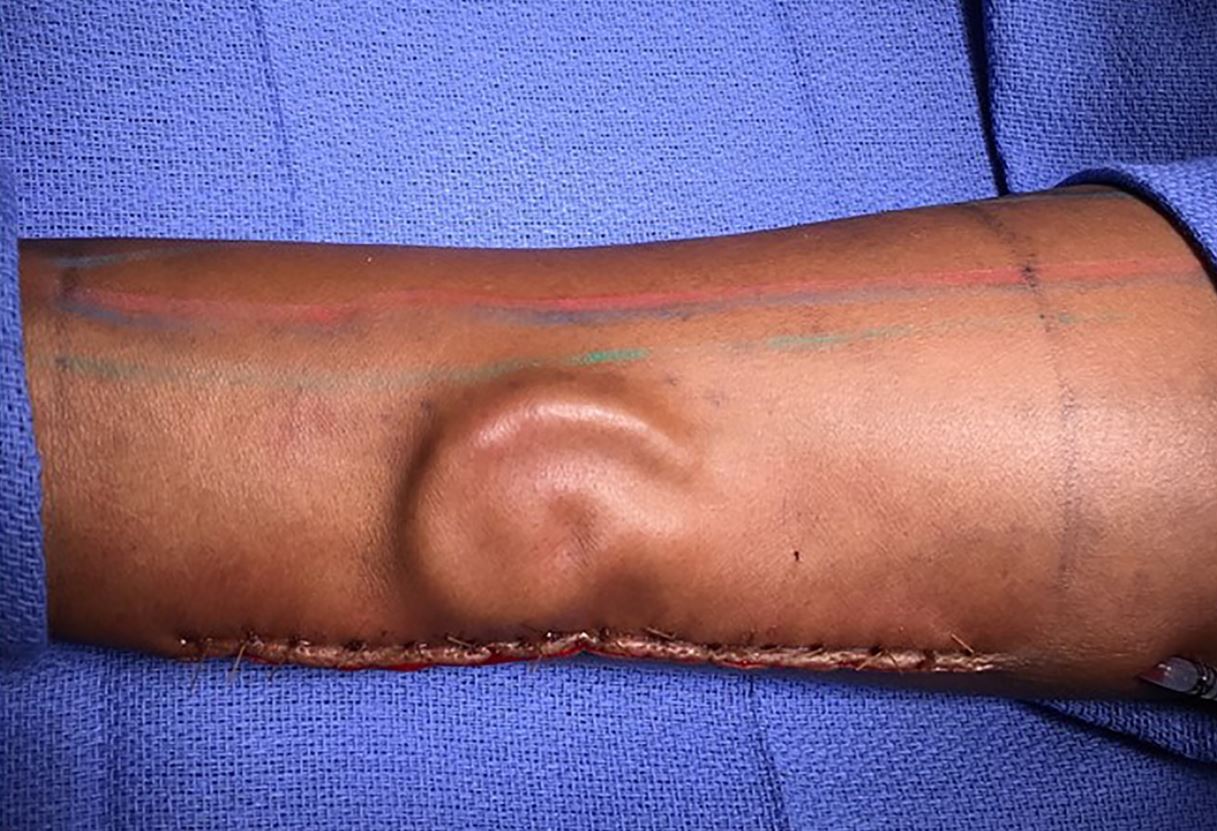Surgeons with the William Beaumont Army Medical Center recently announced a successful completion of a transplant procedure involving a reconstructed ear. Performed on a military private who lost her left ear in an automobile accident, plastic surgeons attached a replacement ear that was grown under the skin of the patient’s forearm, using cartilage harvested from her ribs.
Military officials are saying this is the first time a procedure of this kind has been performed by U.S. Army doctors.
“I was going to go with the prosthetic, to avoid more scarring, but I wanted a real ear,” Pvt. Shamika Burrage, the patient who was 19 years old at the time of the accident, says in a U.S. Army statement about the procedure. “I was just scared at first but wanted to see what he could do.”

Autologous cartilage in the shape of an ear growing in a patient’s forearm is shown as part of cutting-edge total ear reconstruction performed on a 21-year-old Soldier at William Beaumont Army Medical Center, the first of its kind at WBAMC. Recently the cartilage was successfully transplanted on the Soldier, who suffered the total loss of the left ear after a single-vehicle accident in 2016. (Image credit: U.S. Army photo )
Lt. Col. Owen Johnson III, chief of plastic and reconstructive surgery at the El Paso healthcare facility where the surgery was performed, explains that the reconstructed ear was placed into the patient’s forearm in order to promote neovascularization. The result is a nerve and arteries that are freshly developed, allowing Burrage to have sensation in the transplanted ear at the end of the rehabilitation process.
Johnson also needed to reopen Burrage’s left ear canal because it closed up after the accident. Burrage reports no noticeable loss of hearing.
All surgical work has been successful to this point. Burrage is expected to undergo two additional surgeries before the process is complete.
“The whole goal is by the time she’s done with all this, it looks good, it’s sensate, and in five years if somebody doesn’t know her they won’t notice,” says Johnson.




